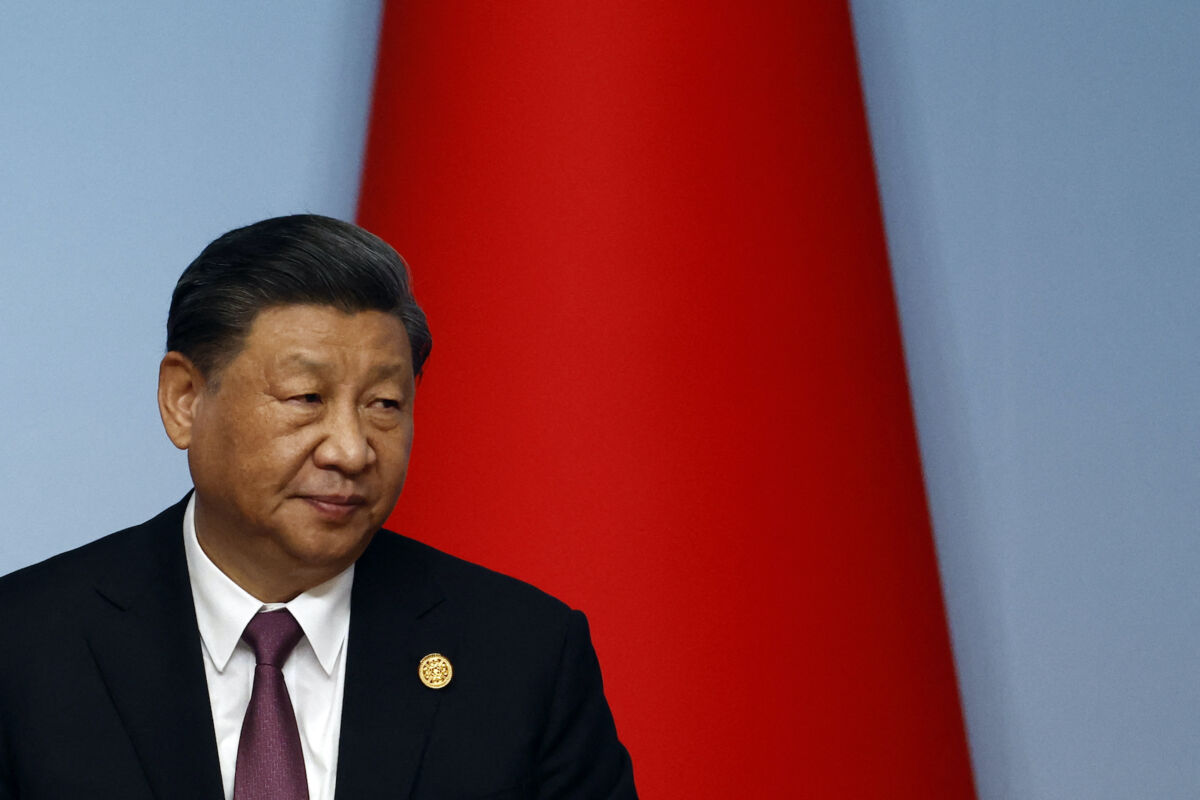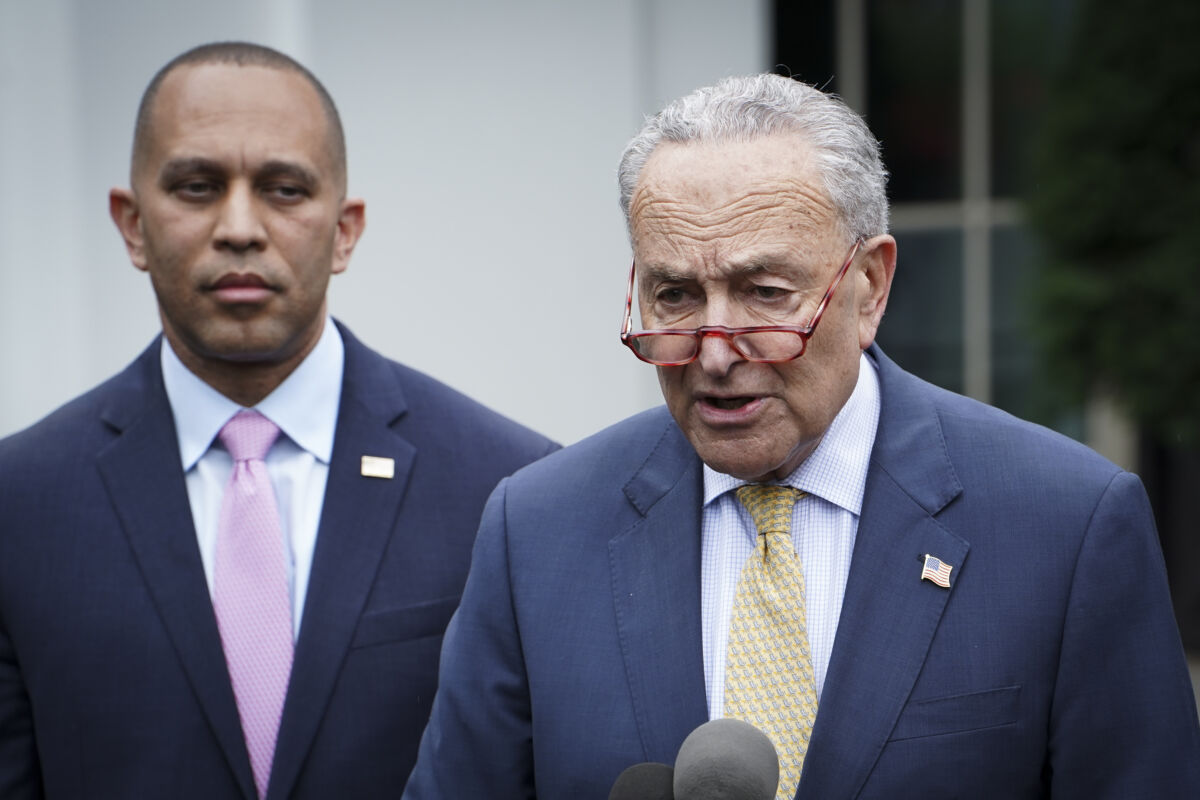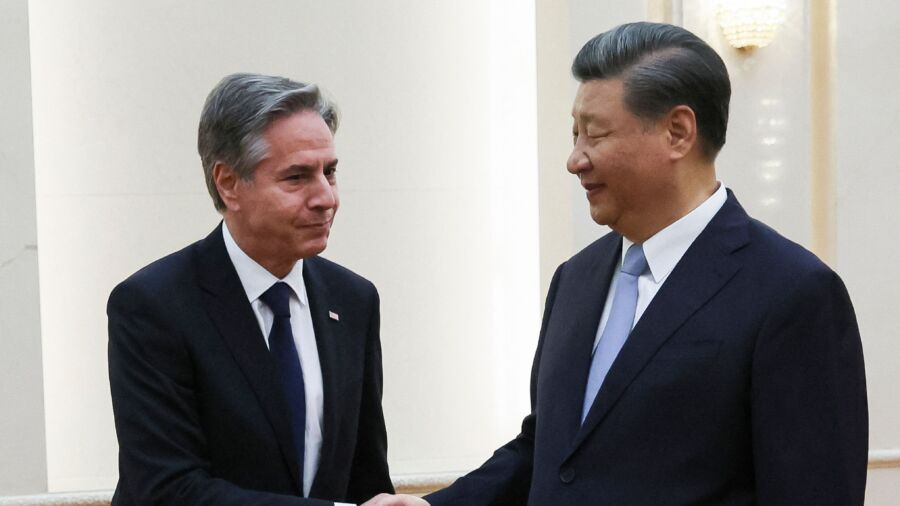Secretary of State Antony Blinken stood by earlier comments from President Joe Biden calling Chinese leader Xi Jinping a dictator, saying “the president speaks for all of us.”
Biden earlier referred to Xi as a “dictator” during a fundraiser event in California, just a day after Blinken reported having had a “robust conversation” with the Chinese Communist Party head in Beijing.
The comment drew the ire of Chinese officials, who called it a “political provocation.” Foreign ministry spokesperson Mao Ning said Biden’s statement “seriously violated China’s political dignity.”

Blinken said during a June 25 appearance on “State of the Union” that he stands by the president’s comment, coming after Biden himself predicted that the comment would have no real effect on relations with China.
CNN anchor Dana Bash discussed the comments with Blinken.
“You just went to Beijing last week. It was an attempt to smooth frayed relations with China,” Bash said. “Two days later, President Biden calls Xi Jinping a ‘dictator,’ which angered China so much that they issued an official diplomatic reprimand to the U.S. ambassador. Was the president wrong to call Xi Jinping a dictator?”
“It’s very clear that when it comes to to China, we are going to do and say things that they don’t like, they are going to do and say things that we don’t like,” Blinken replied. “If you look at what comes out of the Chinese Foreign Ministry every day about the United States, you’d hear plenty of that.”
Blinken also took the opportunity to defend his trip to China, which drew some criticism from Republicans.
“The purpose of my trip at the president’s instruction was to try to bring a little bit more stability to the relationship, to demonstrate that we’re committed to managing it responsibly, … and to be able to deal very directly with our differences,” he said.
“There’s no secret about about those differences. There’s no secret about concerns we have about democracy about human rights, about some of the actions that China is taking around the world.”
Despite these differences, however, Blinken emphasized the importance of maintaining a line of communication with the Chinese state to “avoid escalation to a conflict we want to avoid.”
The nature of the relationship between China is such, Blinken added, that philosophical disagreements are inevitable
“One of the things I told the Chinese is that we’re going to continue to do things and to say things that you don’t like, just as you do the same, and we’ll work through them.”
Bash asked again, “Do you believe Xi Jinping is a dictator?”
Blinken responded, “The president speaks clearly, he speaks candidly, I’ve worked for him for more than 20 years, and he speaks for all of us.
Lawmaker Reactions to Comment
Lawmakers and other public officials gave varied reactions to the “dictator” comment.
House Minority Leader Hakeem Jeffries (D-N.Y.) declined to comment on Biden’s characterization of Xi, but told reporters, “I would characterize what is happening with the Chinese Communist Party and their repression of their citizens as highly problematic, inconsistent with our values as Americans, and that we’re going to continue to stand on the side of freedom.”

Likewise, Senate Majority Leader Chuck Schumer (D-N.Y.) suggested that the comment may have been well-founded, but refrained from open endorsement.
“Well, look, I’d say [Xi] has many, many autocratic tendencies,” Schumer said. “They are not an open and full-fledged democracy, to say the least.”
House Foreign Relations Committee Chairman Mike McCaul (R-Texas) applauded the move, which he said was a more appropriately tough stance.
“Biden is right: Xi is a dictator, and we should treat him as such,” McCaul said. “This administration needs to stop accommodating Beijing, and needs to start moving forward competitive actions.”
McCaul had earlier been critical of Blinken’s China trip, which he suggested yielded too much diplomatic ground to China.
Emel Akan contributed to this report.
From The Epoch Times

